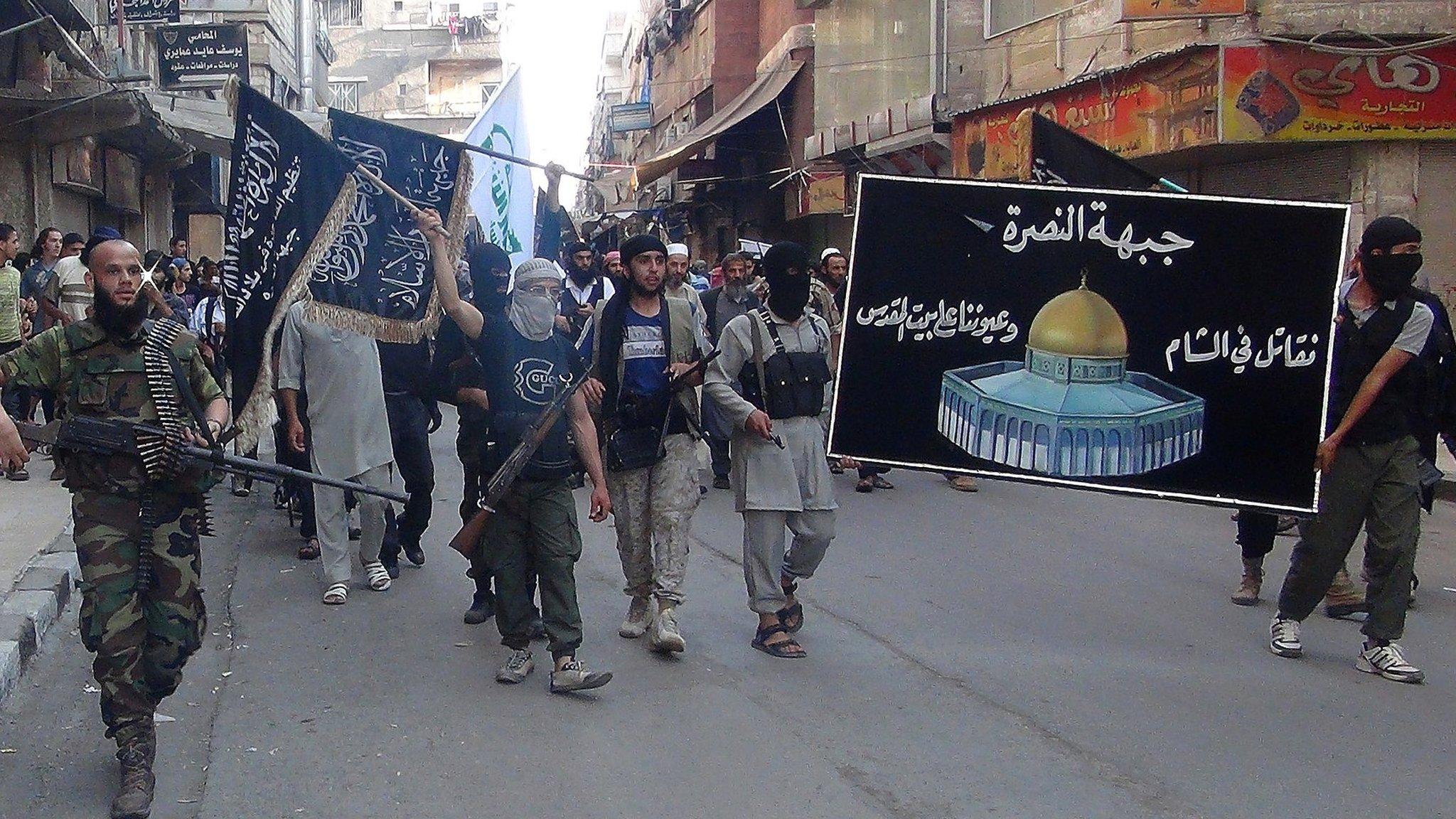Belgium charges five over 'terror plot to kill police'
- Published
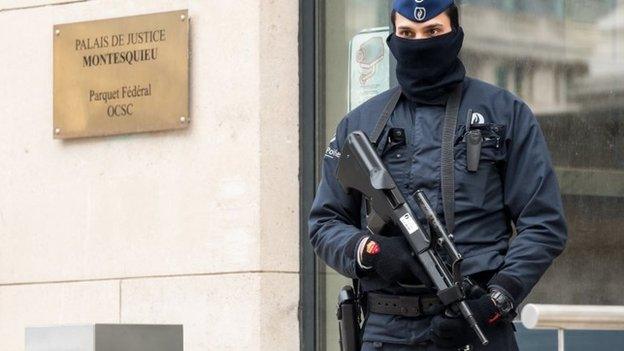
Belgian police are on high alert following raids that began on Thursday
Five people have been charged in Belgium following a series of anti-terror raids that began on Thursday evening and left two suspects dead.
The five have been charged with "participating in the activities of a terrorist group", the prosecutor's office told the AFP news agency.
Officials had said there was an "imminent" threat from suspected jihadists to kill police officers.
Earlier, Belgium's government announced tough new measures to tackle terrorism.
'Intent to kill'
Eric Van Der Sypt, an official at the prosecutors' office, told AFP that three of the five charged suspects were still in custody while the other two had been conditionally released. The rest of the 13 who had been detained in the raids would not be prosecuted, he added.
Details of the raids came as police in France said they had arrested 12 people over attacks in Paris last week, and German officials said they had detained two men in raids against a group suspected of planning an attack in Syria.
The head of Europol, Rob Wainwright, told the BBC that the operations highlighted the complex nature of the terrorist threat across Europe.
"We're dealing with multiple thousands of potential terrorists," he told the BBC World Service.
Amateur video filmed by Frederic Hausman showed the operation in progress
He said it was hard for police to identify plans because suspects were "working in a self-radicalised way very often, not necessarily under any command and control structure".
In Belgium, prosecutor Thierry Werts told reporters that guns, munitions and explosives, as well as police uniforms and a large amount of money, were seized during the overnight raids.
Mr Van Der Sypt added: "The investigation... has shown that these people had the intention to kill several policemen in the street and at police commissariats [police stations].
"The operation was meant to dismantle a terrorist cell... but also the logistics network behind it," he said.
Protective measures would be put in place at police buildings, he said.

Analysis: Duncan Crawford, BBC News, Brussels
Officials in Belgium are well aware of the threat posed by jihadists. In May last year four people were gunned down at the Jewish Museum in Brussels. Mehdi Nemmouche, a 29-year-old Frenchman who returned from Syria, is due to stand trial for the attack.
The country's largest ever terror case is due to conclude in Antwerp next month. More than 40 members of the now-disbanded group, Sharia4Belgium, are accused of recruiting and radicalising dozens of young men to fight in Syria.
Officials say up to 350 Belgian citizens have travelled to Syria and Iraq. The Belgian security services fear radicalised fighters could return home to launch a terror attack. The government says it will toughen up anti-terror laws, but officials acknowledge it's impossible to prevent all attacks.

No link had been established with last week's attacks in Paris, Mr Van Der Sypt said, adding that Belgium would seek the extradition of the two suspects in France.
"I can confirm that we started this investigation before the attacks in Paris," he said.
Last week, gunmen in Paris attacked the offices of satirical magazine Charlie Hebdo, a kosher supermarket and police officers, killing 17 people in the French capital.
Prime Minister Charles Michel urged the public not to panic
Belgian Prime Minister Charles Michel thanked the French authorities for detaining the suspects in France.
He told the public there was no need to panic, and that his government would "take measures" to ensure the safety of civilians.
Schools closed
The government said it would strengthen its anti-terror legislation and policies. New measures would include:
Making travelling abroad for terrorist activists punishable by law
Expanding the cases where Belgian citizenship can be revoked (for dual nationals) for those thought to pose a terror risk
Calling in the army to boost security when necessary
Freezing the assets of those financing terrorism
Measures to tackle radicalisation in prisons
Gilles de Kerchove, a counter-terrorism co-ordinator for the EU, told the BBC he was "not surprised" there were plans for attacks in Belgium, because the country had "suffered in a way from the high number of people going to Syria and Iraq" to fight.
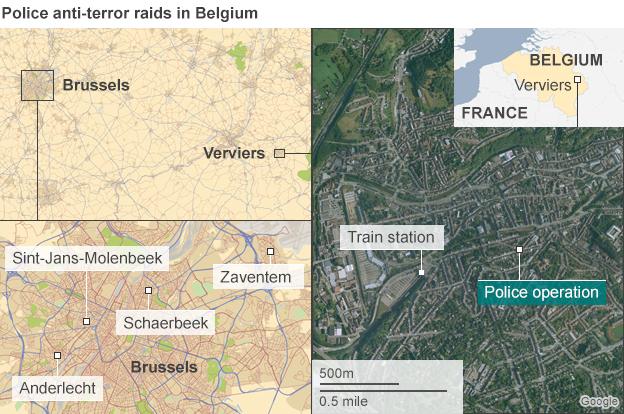
Belgian officials say 300-350 people have left Belgium to fight with Islamic militant groups in Syria and Iraq.
Among European countries, Belgium is thought to have the highest number of citizens per capita who have gone fight in Syria.
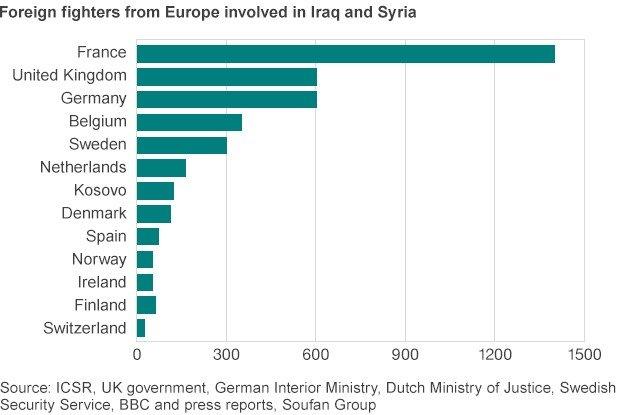
The suspects shot dead on Thursday had returned from the country, police said. They had shot at police "for several minutes" before being killed, prosecutors added.
The terror threat level in Belgium has been raised to three - the second highest.
Some Jewish schools in Antwerp and Brussels were closed on Friday, after they were informed that they could be potential targets, Belgian newspaper Joods Actueel reported.
- Published16 January 2015
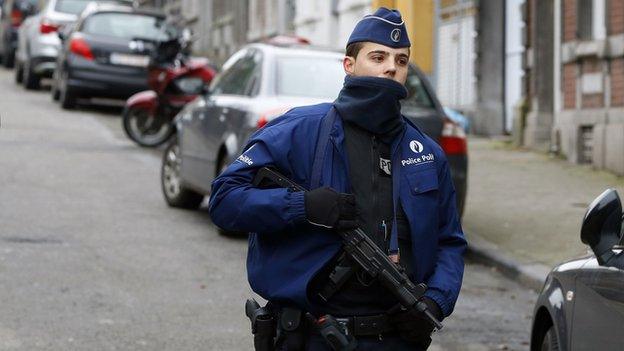
- Published15 January 2015
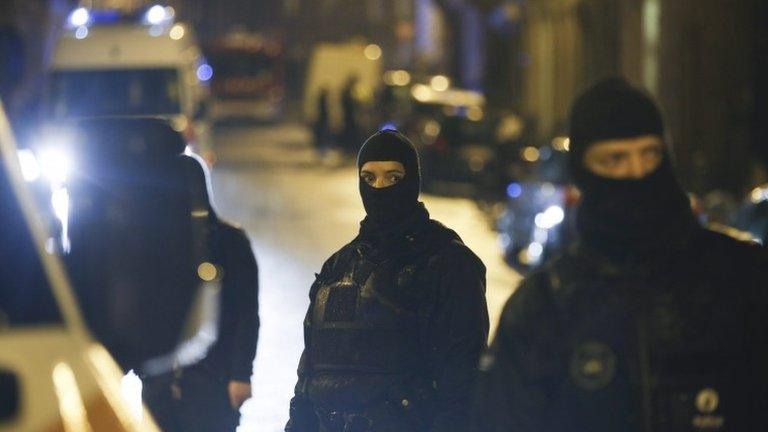
- Published13 January 2015
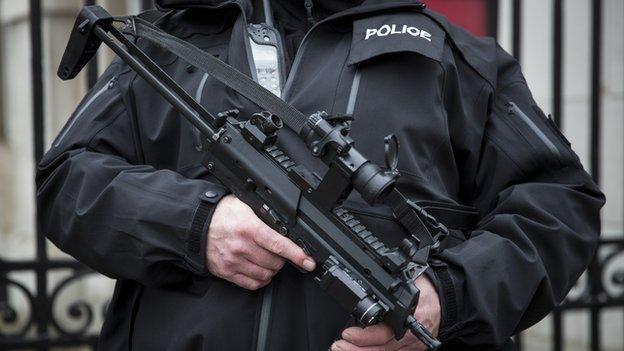
- Published7 January 2015
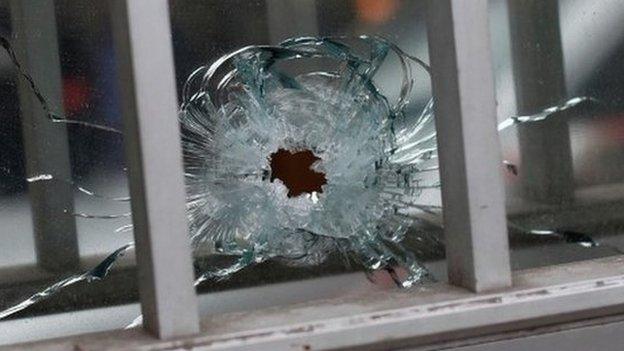
- Published18 November 2014
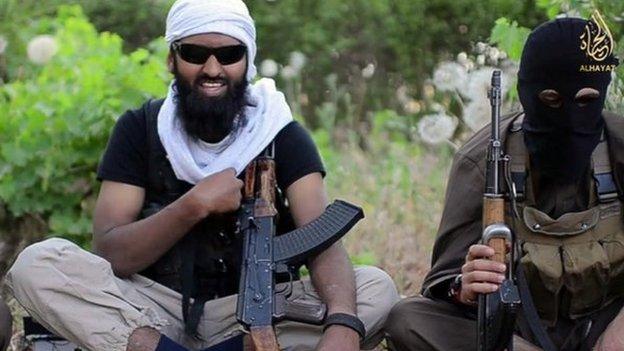
- Published3 September 2014
